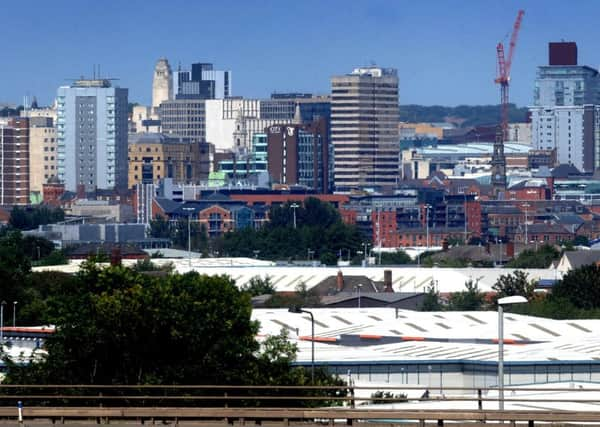Judith Blake: Why towns and cities need each other


That’s the simple message behind Talk of the Town, a new report by Centre for Cities and Core Cities UK published today.
As Core City leaders, we’re used to criticism that the urban agenda has been too focused on cities and ignores other places, some of them in Yorkshire, that have their own challenges but are often wrongly labelled as ‘struggling’ or ‘left behind”.
Advertisement
Hide AdAdvertisement
Hide AdWe’ve always argued that strong cities are key to creating a country that works for everyone, regardless of whether you live in Goole or Glasgow.
But what we’ve noticed recently is a binary, either/or argument developing amongst politicians and policy-makers.
There is a danger that cities are mistakenly seen as somehow ‘bad for’ their surrounding areas when the exact opposite is true.
To demonstrate this, the report looks at two things.
The first is the contribution that cities make to Britain’s economic, civic, and cultural life.
Advertisement
Hide AdAdvertisement
Hide AdIt shows that despite covering just nine per cent of land, British cities account for 60 per cent of jobs, generate 63 per cent of all tax and are home to 75 per cent of all employment in arts, entertainment and culture.
And this is of benefit not just to people who live in our cities, but those who live around them too.
Think about the many thousands of people who get off the train at Leeds station every day to go to work, to go to events at the Leeds Arena or to visit the shops and bars in the city centre.
This is replicated across the country, with 22 per cent of people living outside city boundaries commuting in to a city for work, or coming in to use the many amenities that dense cities can offer.
Advertisement
Hide AdAdvertisement
Hide AdThe second key point of the report is the importance of links between cities and towns.
Towns close to cities tend to do better than more geographically isolated ones, having lower unemployment rates and higher shares of high-skilled, high-paid jobs.
But this doesn’t happen automatically, and being close to a city doesn’t guarantee success. Indeed, towns close to struggling cities also tend to perform poorly themselves.
This highlights two important points. Firstly, if some of our towns are ailing, so, too, are many of our cities.
Advertisement
Hide AdAdvertisement
Hide AdAnd secondly, instead of ignoring cities, part of the policy response to help towns that aren’t performing well has to be focused on improving the performance of their neighbouring city.
Cities are not islands on their own. They have a mutual inter-dependence with other places. We need to better understand these links so we can formulate cohesive urban policy that works for all, taking into account flows of goods, people and knowledge.
As the report makes clear, we must also improve our skills system in all places, be they towns or cities.
One of the reasons Harrogate does so well is because so many of its residents are highly qualified, in contrast with Pontefract or Bridlington, where fewer residents have a degree.
Advertisement
Hide AdAdvertisement
Hide AdAnd we must continue further along the devolution journey so all communities have greater freedoms and controls.
After all, they are better placed to decide what’s best for their economies than politicians and civil servants in Whitehall.
It is not a question of cities or towns. The way forward is to recognise the power and potential of place-based policy to create a better, fairer and more inclusive UK.
Councillor Judith Blake is Chair of Core Cities UK and Leader of Leeds City Council. A copy of Talk of the Town report can be downloaded from The Core Cities UK website www.corecities.com